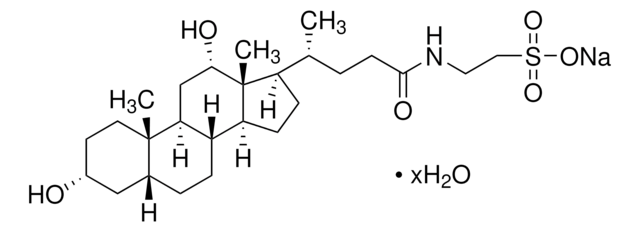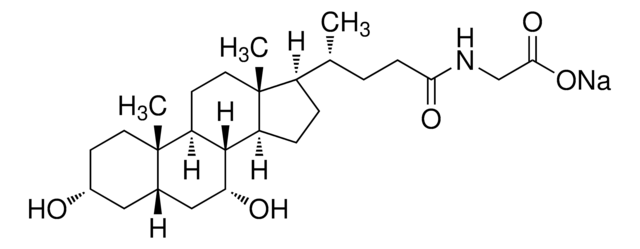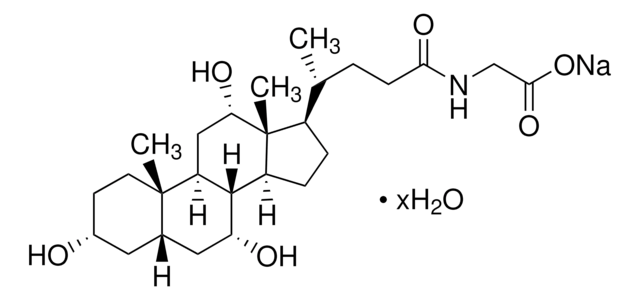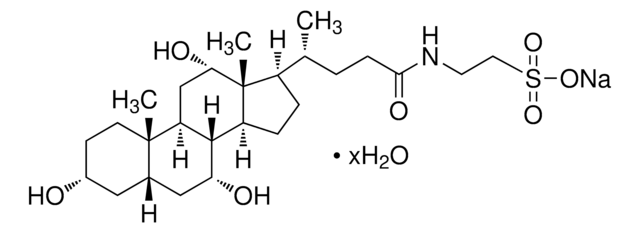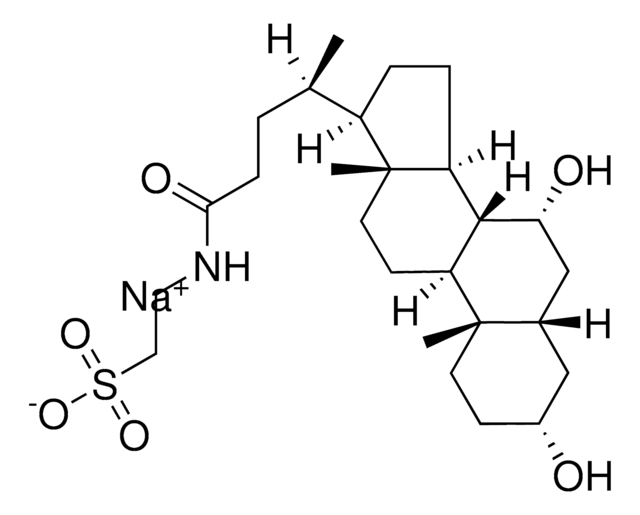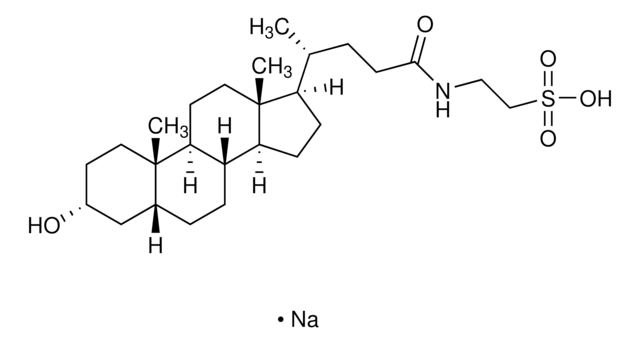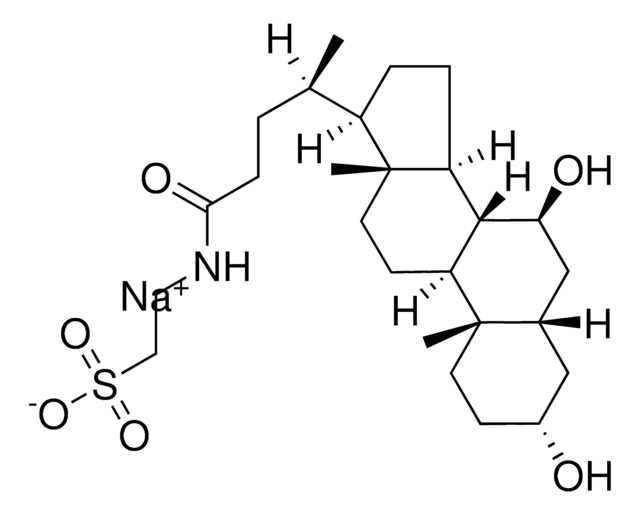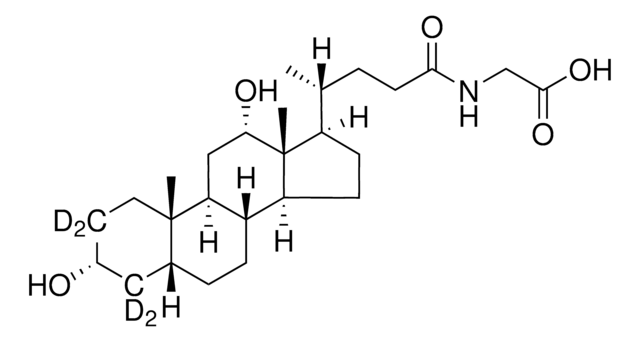G9910
Sodium glycodeoxycholate
BioXtra, ≥97% (HPLC)
Synonym(s):
3α,12α-Dihydroxy-5β-cholan-24-oic acid N-(carboxymethyl)amide, Glycodeoxycholic acid sodium salt, Glycodesoxycholic acid, N-(3α,12α-Dihydroxy-24-oxocholan-24-yl)glycine
About This Item
Recommended Products
description
anionic
Quality Level
product line
BioXtra
Assay
≥97% (HPLC)
mol wt
471.61 g/mol
impurities
≤0.0025% Phosphorus (P)
≤0.1% Insoluble matter
CMC
2.1 mM
solubility
H2O: 0.1 M, clear to slightly hazy, colorless to almost colorless
anion traces
chloride (Cl-): ≤1%
sulfate (SO42-): ≤0.05%
cation traces
Al: ≤0.0005%
Ca: ≤0.011%
Cu: ≤0.0005%
Fe: ≤0.001%
K: ≤0.005%
NH4+: ≤0.05%
Pb: ≤0.001%
Zn: ≤0.003%
SMILES string
[Na].[H][C@]12CC[C@@]3([H])[C@]4([H])CC[C@]([H])([C@H](C)CCC(=O)NCC(O)=O)[C@@]4(C)[C@@H](O)C[C@]3([H])[C@@]1(C)CC[C@@H](O)C2
InChI
1S/C26H43NO5.Na.H/c1-15(4-9-23(30)27-14-24(31)32)19-7-8-20-18-6-5-16-12-17(28)10-11-25(16,2)21(18)13-22(29)26(19,20)3;;/h15-22,28-29H,4-14H2,1-3H3,(H,27,30)(H,31,32);;/t15-,16-,17-,18+,19-,20+,21+,22+,25+,26-;;/m1../s1
InChI key
BMYWWGPEKRLDGW-ZXMGEDLUSA-N
Looking for similar products? Visit Product Comparison Guide
General description
Application
Biochem/physiol Actions
Other Notes
Storage Class Code
11 - Combustible Solids
WGK
WGK 3
Flash Point(F)
Not applicable
Flash Point(C)
Not applicable
Personal Protective Equipment
Certificates of Analysis (COA)
Search for Certificates of Analysis (COA) by entering the products Lot/Batch Number. Lot and Batch Numbers can be found on a product’s label following the words ‘Lot’ or ‘Batch’.
Already Own This Product?
Find documentation for the products that you have recently purchased in the Document Library.
Customers Also Viewed
Articles
Today, diverse studies report the benefits of probiotics, such as inhibitory effects on pathogens, aid in the management or prevention of chronic intestinal inflammatory diseases or atopic syndromes, and support to the immune system. Potential beneficial applications abound, researchers continue to evaluate the effictiveness and clarify the mechanisms of action of probiotics.
Our team of scientists has experience in all areas of research including Life Science, Material Science, Chemical Synthesis, Chromatography, Analytical and many others.
Contact Technical Service
